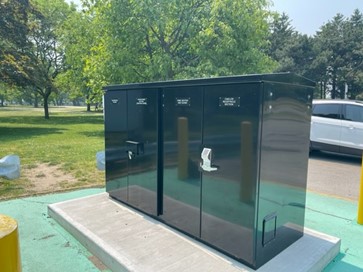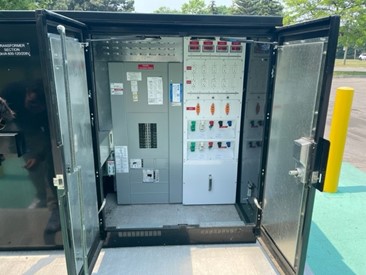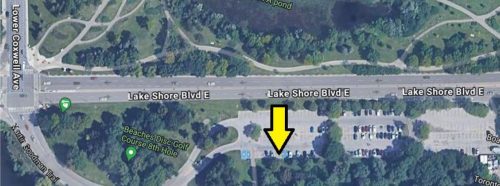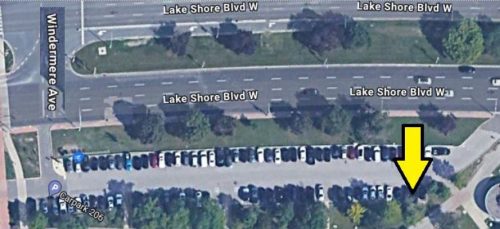
Toronto was voted number one “Best Place to Live and Work as a Movie Maker” in 2024. This yearly survey of film cities, conducted by MovieMaker Magazine, recognizes Toronto’s excellent crews, beautiful locations and vast studio space. Toronto is one of the top five screen-based industries in North America with a full scope of industry connections, services, suppliers, talent, crew, facilities and locations delivering everything required for success in pre-production through post production.
Toronto is at the heart of the province’s film and television production sector. This dynamic sector is an outlet for creativity and talent; a place where not only actors, but also other specialists such as designers, carpenters, make-up artists, animators and writers can hone their craft and thrive.
The City of Toronto in collaboration with the local screen industry, has established xoTO Schools, a pilot program with the Toronto District School Board (TDSB) to enable enhanced access for location filming in 11 pre-approved TDSB properties. The scouting and permit application processes are streamlined for each of these properties, with the program offering a special daily rate card and 72-hour permit turnaround. More information on the program and the 11 sites currently participating are available through Ontario Creates.
Participating schools:
xoTO Schools also creates interactive educational opportunities for students. Co-op placements will be created through the academic year in categories such as makeup, hair, sound, special effects, props, set decoration, costume design, continuity, lighting, grip, construction, paint and transportation. The students will work with industry professionals, providing them with unprecedented on-the-job training that will best position those who want to further their education and employment opportunities in the industry. Toronto’s unions and guilds will also work with the TDSB to provide students access to industry workshops, seminars, events and guest speakers that support existing TDSB film arts curriculum, and to educate students on the variety of jobs available in the film industry.
To apply for a xoTO Schools TDSB Co-op placement the student must be attending a TDSB school, be 16 years or older and have a minimum of 16 credits. Students must obtain a Co-op placement application from their school’s Co-op or Student Services Department.
Power drops are fixed electrical stations that allow film productions to plug into grid electrical power. They eliminate the need for the diesel generators customarily used by productions, creating a potential reduction of 400 tonnes of greenhouse gas (GHG) emissions per year or the equivalent annual energy use of 45 homes.


The City of Toronto has installed two power drop kiosks at film industry hotspots Ashbridges Bay/Woodbine Beach (1561 Lake Shore Blvd East) and beside Sunnyside Beach at Sir Casimir Gzowski Park (1751 Lake Shore Blvd West).

1561 Lake Shore Blvd. E., Ashbridges Bay/Woodbine Beach

1751 Lake Shore Blvd. W., Sir Casimir Gzowski Park
Delivered as part of the City’s TransformTO Net Zero Climate Action Strategy to reduce carbon emissions in Toronto to net zero by 2040, this project was made possible through the work of multiple City divisions and agencies. Using extensive location permitting data, top locations used by film productions were identified – some of which are parks. The City also partnered with Toronto Hydro to assess which locations had sufficient available grid-power and which would be most viable financially and logistically. In partnership with the Toronto Atmospheric Fund, GHG emissions reduction calculations were provided to quantify the project’s impact.
These power drops demonstrate the City’s commitment to reducing greenhouse gas emissions from all sectors of the economy and are a key feature in anchoring Toronto as a green, film-friendly location, playing an active role in attracting more productions to the city.
In addition to a sizable reduction in GHG emissions/carbon footprint, this type of green infrastructure is a key feature in anchoring Toronto as a green, film-friendly location and plays an active role in attracting more productions in a booming sector. While film use will be prioritized, other events (public events, food trucks, construction) requiring power access at these parks can also take advantage of these kiosks.
Please contact the Toronto Film, Television & Digital Media Office if you require further information, filmtoronto@toronto.ca.
Toronto is the world’s most tax competitive major city for business (KPMG Focus on Tax, 2016). Many of the incentives and tax credit programs offered are for film, television and digital media.
Visit Ontario Creates to find out about and apply for the tax credits they administer:
Visit the Canada Revenue Agency (CRA) to find out about and apply for the tax credits they administer: